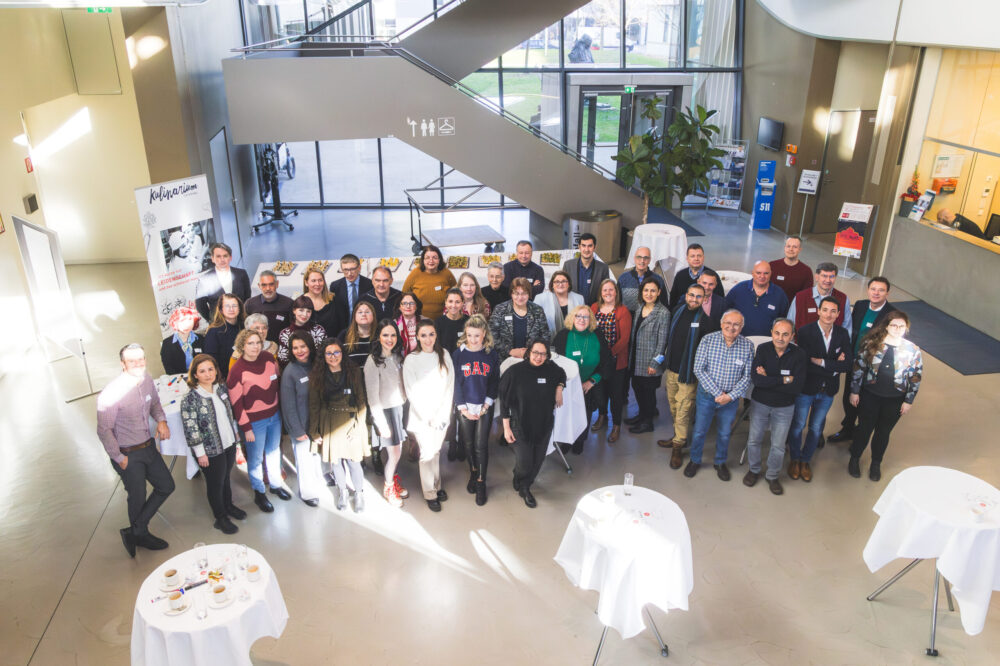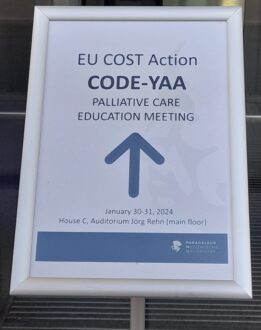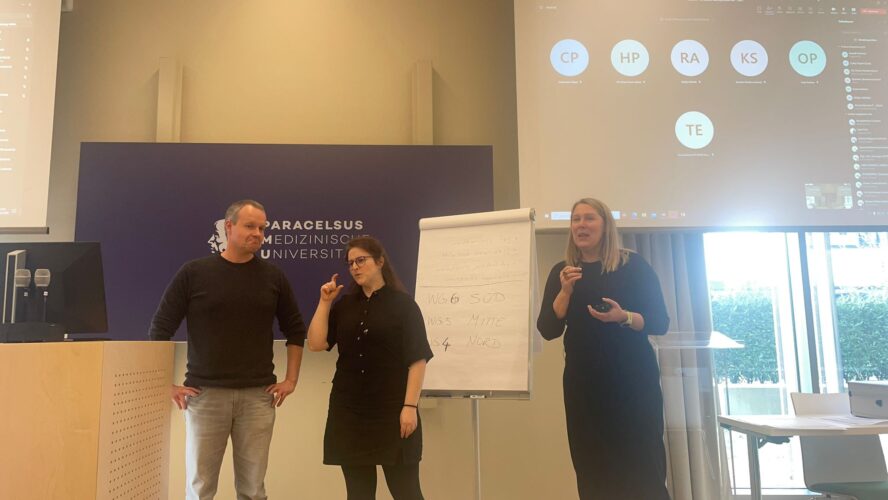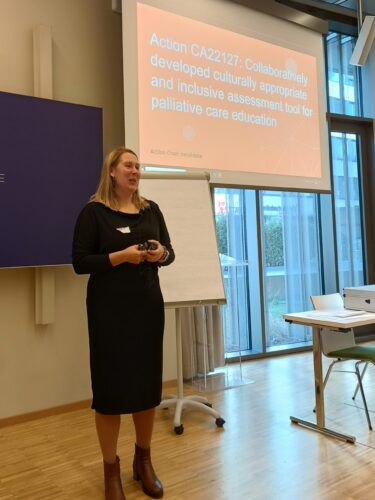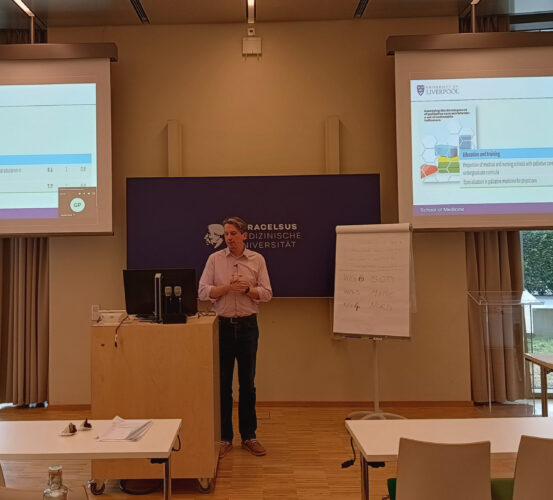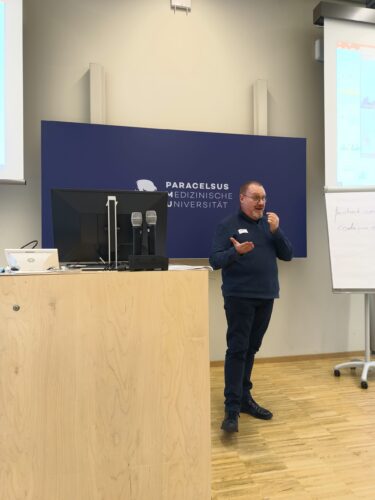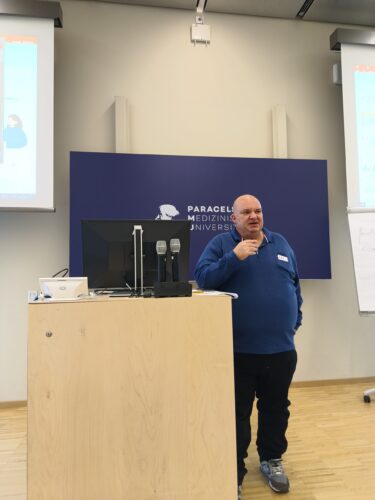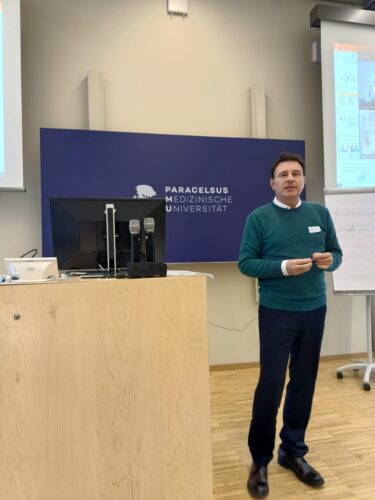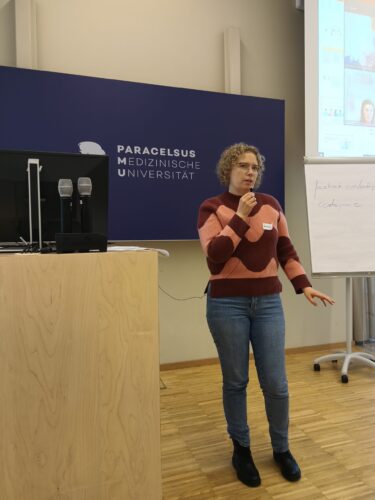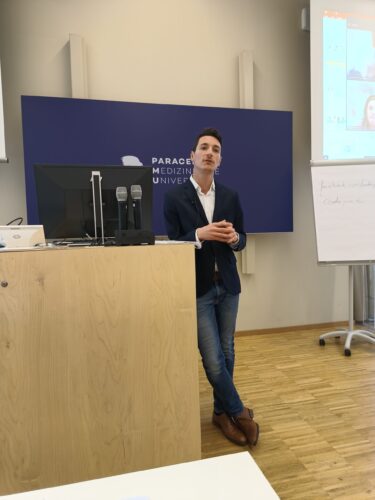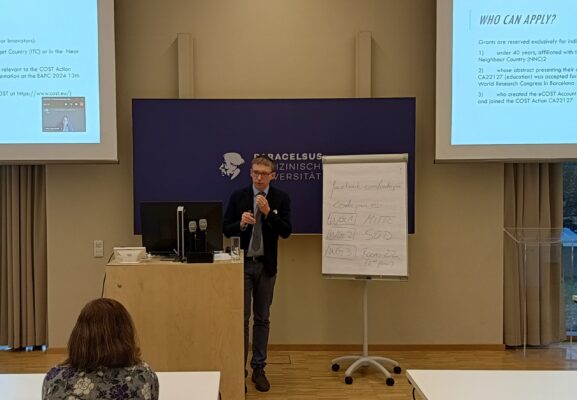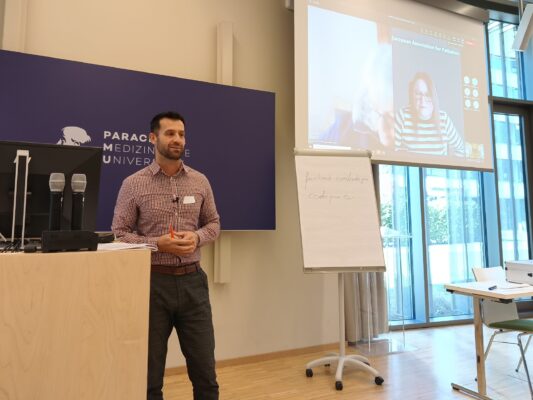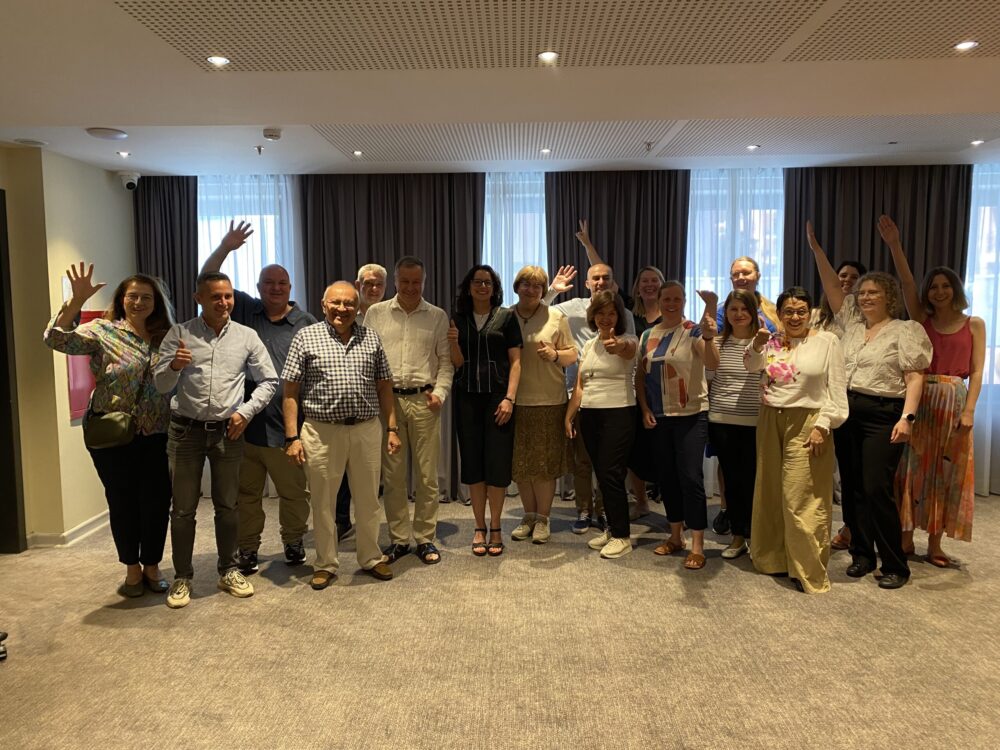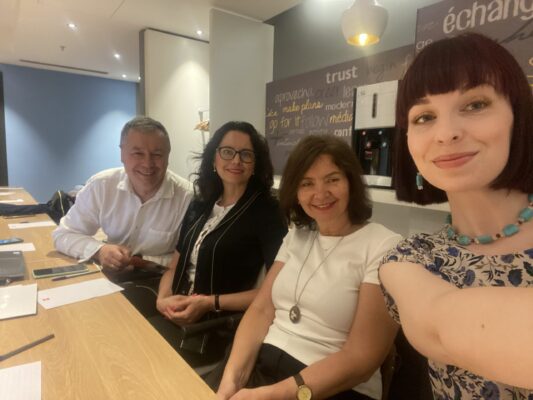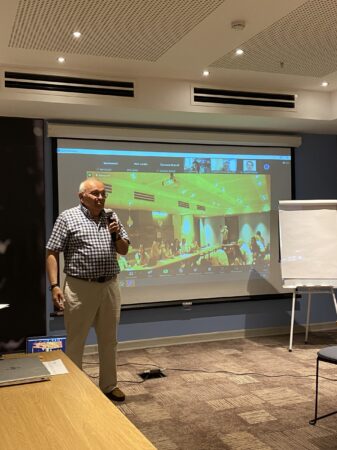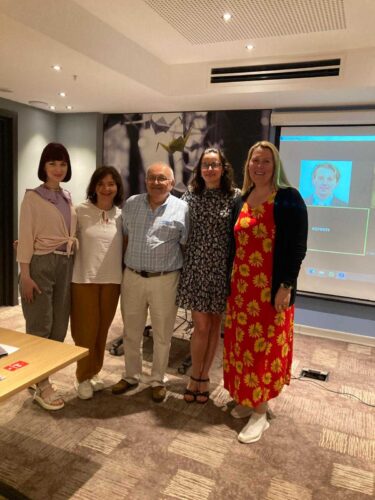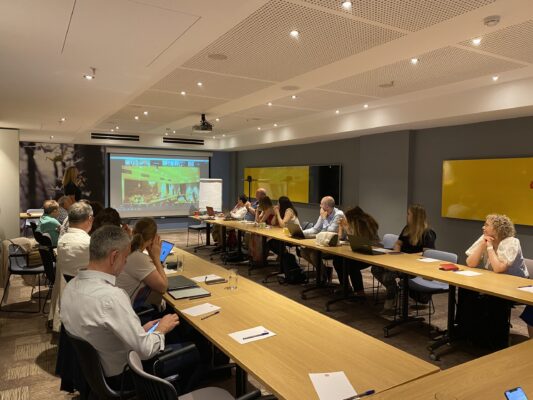Code-Yaa@PC-Edu Meets in Tartu: Shaping the Future of High Quality Palliative Care Education
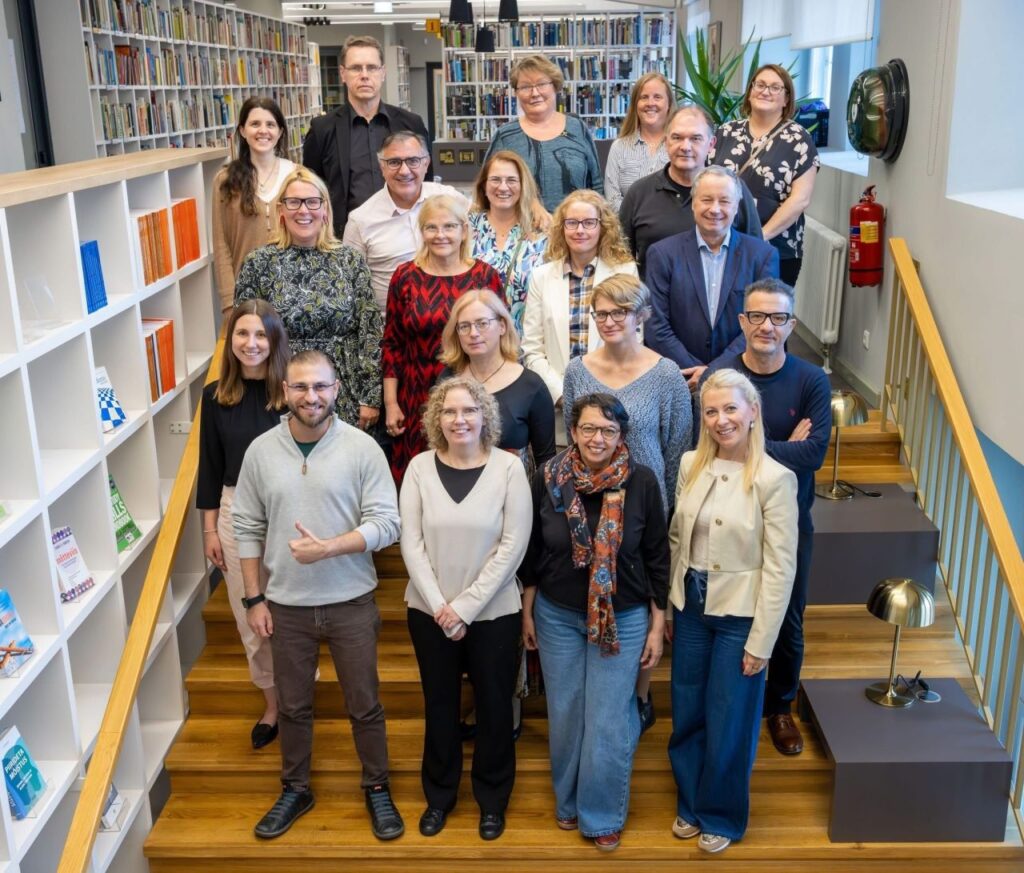
On 28 August 2025, experts from across Europe met in Tartu, Estonia, and online for the latest Code-Yaa@PC-Edu Hybrid Meeting, part of COST Action CA22127.
The gathering, hosted by the University of Tartu, focused on the big questions shaping palliative care education today:
- Why do we need a shared glossary of terms?
- What makes a strong quality indicator for palliative care education?
- How can we ensure these indicators work across different educational levels and cultural contexts?
Participants rolled up their sleeves for workshops, tested the project’s 36 quality indicators, and shared national perspectives on translation, ethics, and tool development. The conversations showed the real strength of this project: bringing together diverse voices to create something practical, inclusive, and evidence-based.
The day ended on a high note with the launch of the Influencer Award Call, which will celebrate outstanding contributions to raising awareness and innovating in palliative care education.
Despite the complexity of the topics, the atmosphere was anything but dry; there was energy, collaboration, and a clear sense of shared purpose. The Tartu meeting proved that while the challenges are significant, the enthusiasm to move forward together is even bigger.
Next up: in-country workshops, further toolkit development, and continued collaboration across Europe.
Stay tuned: the journey is only getting more exciting!
COST Academy Young Researcher Training, Brussels, Belgium – 2–3 September 2025
Social Media coordinator Sofiia Shunkina participated in the COST Academy Young Researcher Training at the COST Association office in Brussels on 2–3 September 2025, representing the CODE YAA project (Palliative Care Education Action).
The training brought together around 40 young researchers from across the world to network, share experiences, and develop new skills. It focused on supporting early-career researchers, facilitating knowledge exchange within COST Actions, and promoting professional development.
COST Academy actively supports young researchers by providing opportunities to participate in trainings and projects, share ideas, and connect with international colleagues. Participants in the trainings can:
-
Gain new knowledge and research opportunities
-
Establish connections with peers and like-minded professionals
-
Present their work and increase visibility
-
Receive guidance and support for research and project activities
-
Find inspiration and new perspectives for personal and professional growth
COST Academy trainings contribute to the professional development of young researchers and strengthen international collaboration, as part of the broader CODE YAA project aimed at improving quality indicators for palliative care education.
SUMMER SCHOOL, Pamplona, Spain 2025
The Summer School organised by Working Group 4 (WG4) took place from 9 to 13 June
2025, at the University of Navarra Museum in Pamplona, Spain. Here is the Memory and Evaluation Report (pdf).
Working Group 2 Meeting
.COST action CA22127 CODE-YAA aims to develop quality indicators to assess the quality of palliative care education. Through a multi-step process (literature review, document analysis, and a Delphi study) a list of over 30 indicators has been developed.
On June 2–3, a WG2 meeting was held at Lithuanian University of Health Sciences in Kaunas, Lithuania. During the meeting the group agreed on a standardized format for translating the tool, using a multidisciplinary approach and artificial intelligence tools. Each participating country will appoint local experts in palliative care, education, and linguistics to support the translation process. In addition, a group created a glossary of key terms to assist in adapting the indicators into various languages.
The collaborative spirit, fresh insights, and mutual support shown at the meeting were truly energizing



